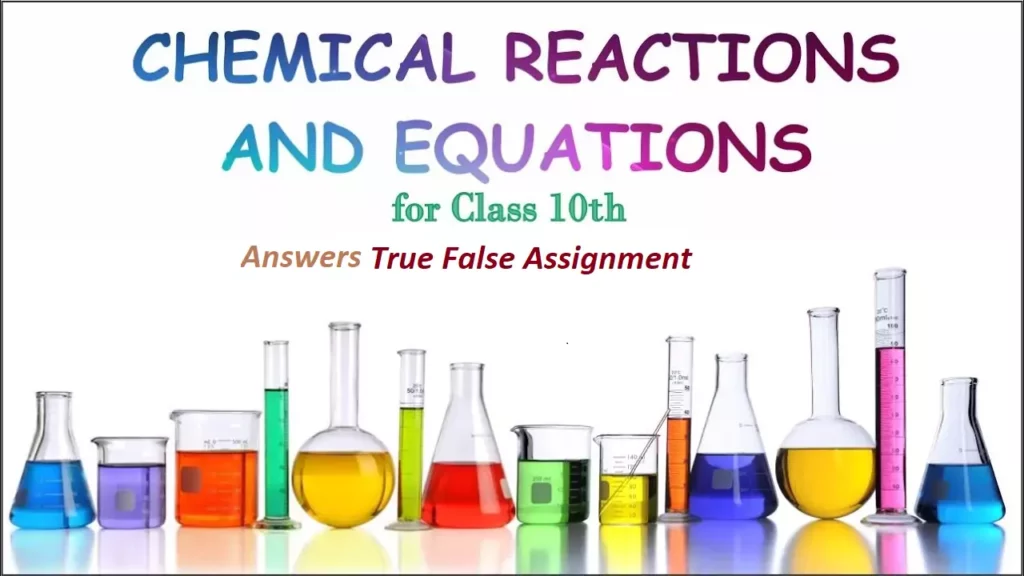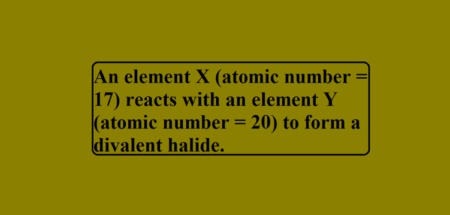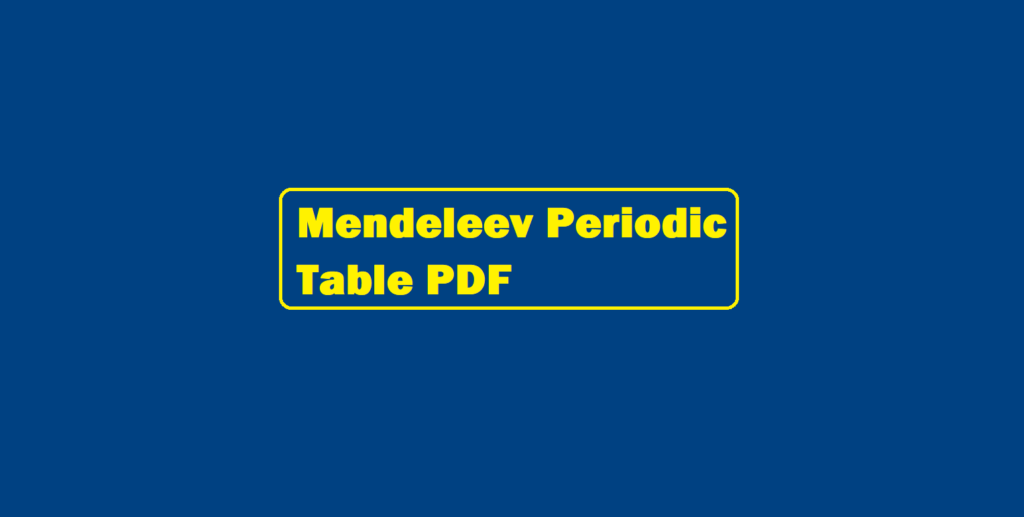The post Answers True False Chemical Reactions and Equations contain all answers to the previous post in a proper manner.
To get Questions Click the link below
True False Assignment Chemical Reactions and Equations
Answers True False Chemical Reactions and Equations
Ans 36. (ii) Rancidity is an oxidation process
Ans 37. A is Zinc, B is ZnSO4 solution, C is H2 gas and reactions will be
Zn + H2SO4 (aq) → ZnSO4 + H2
Ans 38. A, B, C, and D are CuSO4.nH2O, CuSO4, ZnSO4 and Cu respectively.
Ans 39. (i) Cr2O3 + 2 Al → Al2O3 + 2Cr
(ii) This reaction is used in termite welding
Answers True False Assignment Chemical Reactions and Equations
Q 40. Choose and state as true or false
- In an exothermic reaction, heat is evolved. True / False
- Decomposition is possible by thermal decomposition, electrolytic decomposition and photochemical decomposition. True / False
- The displacement reaction of metals is based on the reactivity series of metals. True / False
- The oxidising agent is a substance that causes the addition of oxygen or the removal of hydrogen from other substances. True / False
- The reduction is a process that involves the removal of hydrogen and the addition of oxygen. True / False
Q 41. Give a word fill in the blank
- The substance which causes the addition of oxygen or removal of hydrogen from other substances is …Oxidising…….. agent.
- The presence of air, the presence of moisture, the presence of salt in water, and electropositive metals lead metal to ………Rusting…
- ……Noble or Ag, Au, Pt…………metals are less electropositive and hence they do not corrode in moist air.
- A reaction in which an insoluble product formed during the reaction of two ionic compounds in an aqueous solution is called …Precipitation. reaction.
- A substance that causes the addition of Hydrogen or removal of Oxygen from another substance is called …Reducing Agent…….
- The arrangement of elements in decreasing order of their electropositive character is called ……Reactivity Series…
- When sodium metal is added to water, it gets …Oxidised….
- In the order of decreasing order of reactivity in Ca > Al > Zn > H > Ag > Pt The most reactive metal is ………Ca…….
- In the order of decreasing order of reactivity as stated above the least reactive metal is …….Pt…………..
- In the order of Ca > Al > Zn > H > Ag > Pt Choose the metal which from above can react with all the salt solutions. ……Ca………
In order to get the questions to the post Answers, True False Chemical Reactions and Equations Click the link below
True False Assignment Chemical Reactions and Equations
Activity-based One or Two-line quiz questions
Ans 42. Sodium does not react with kerosene oil but reacts in water and air.
Ans 43. Blue-coloured copper sulphate crystals CuSO4.5H2O loses water molecules on heating and turn to white.
Ans 44. Hydrogen librates at the cathode and hydrogen ions take electrons from the cathode.
Ans 45. Quick lime (CaO) in water forms lime water Ca(OH)2 milky white substance by a combination reaction.
Ans 46. Green-coloured ferrous sulphate crystals FeSO4.7H2O loses and also decompose to form a brown oxide of Iron Fe2O3 with the evolution of SO2 and SO3.
Ans 47. In a photochemical reaction, AgCl decomposes to Ag(s) grey-coloured mass.
Ans 48. Silver or gold are the least electropositive metals and hence do not react easily when exposed to air, water or light.
Ans 49. Only strong metals can replace weak metals in salt solution but not vice versa.
Ans 50. When Iron nails are exposed to air and water, it forms brown colour on nails for at least 3-4 days.
Answers True False Assignment Chemical Reactions and Equations


